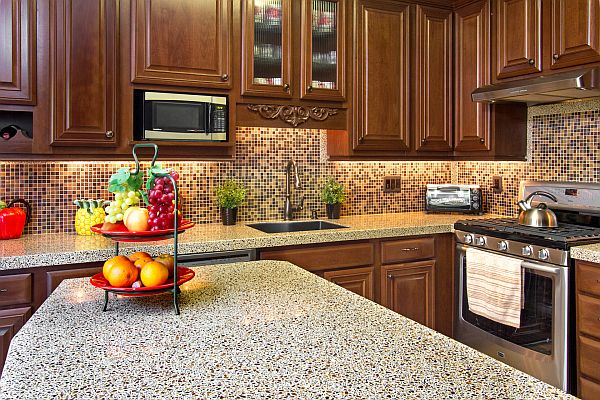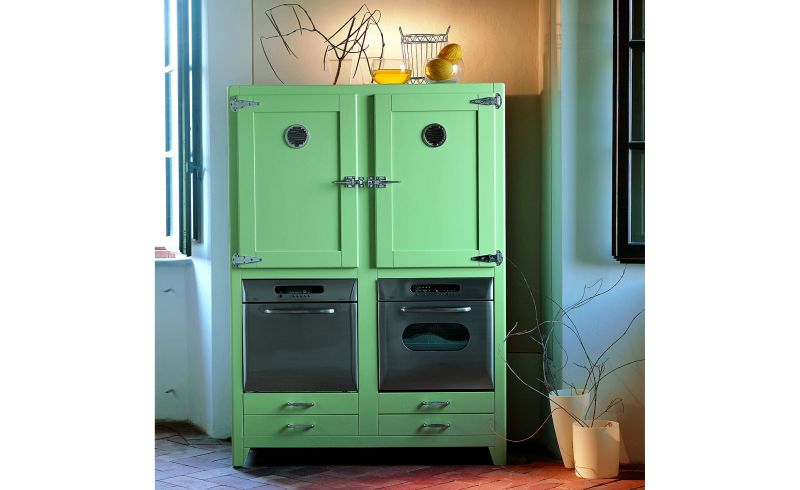Kitchen countertops are the most important of all the kitchen design elements, not just because they are highly attractive, but also because they are extremely functional and useful. There are innumerable options available to be used as materials for your countertop construction.
The options range from natural stone to butcher blocks and differ in their appearance, durability and use. Choosing the best material for your kitchen countertop can be really daunting. Read below to know more about the materials that would add to the beauty and functionality of your kitchen countertops while creating a distinct style statement for your kitchen.
Concrete
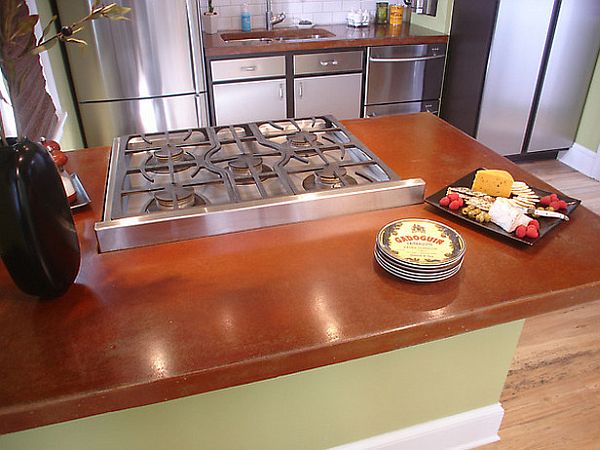
The use of concrete in the making of kitchen countertops is increasing, since concrete is a very strong, durable and long lasting material that offers both, strength and beauty to any construction. Concrete is heat and stain proof but requires regular sealing with sealers that are not resistant to high temperature and stains.
On the other hand, sealers prevent the countertop damage due to water. Poured concrete looks extremely natural and can be molded to any desired shape. Whereas, especially designed and custom made precast concrete counters are also available that are very easy to install. These are extra smooth and flat and resemble natural stone slabs.
Stainless steel
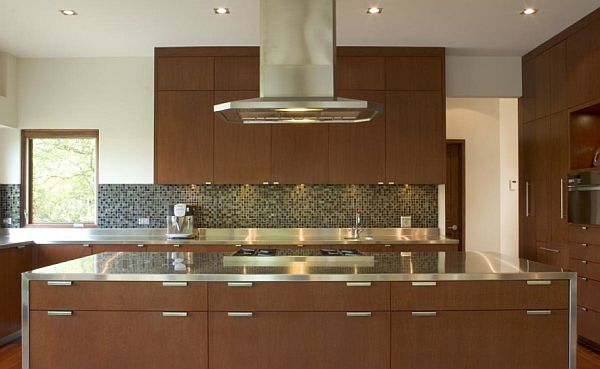
Stainless steel is amongst those few materials that are intensely attractive and very functional at the same time. It is stain and heat resistant, and can suit kitchen interiors that could be modern to rustic. The most commonly steel type for countertop construction is the type 304 because of its greater chromium content and ability to withstand welding without getting damaged.
Stainless steel countertops are available in a variety of finishes and textures such as reverse hammered, brushed, satin, antique matte etc. Stainless steel also goes well with any sort of kitchen cabinets from white to dark and bold.
Stone
The strength and elegance of stone is simply unparallel to any other countertop material. Stone countertops are generally created out of the following stone varieties:
- Natural Stone:
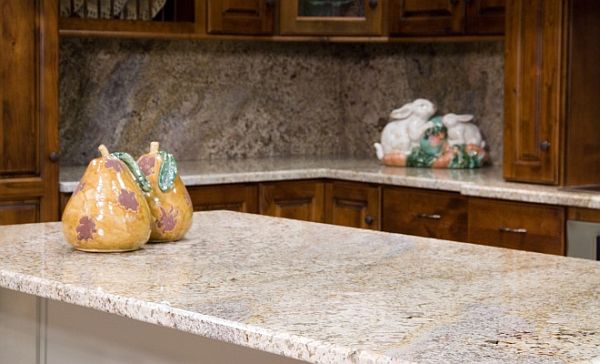
Natural stones are the most durable and sturdy of all the materials use for making countertops. They are never out of fashion, extremely beautiful and therefore, the most expensive countertop making material. Natural stone use for countertops are –
- Granite – it is the most popular natural stone used for constructing kitchen countertops because of its naturally appealing beauty, large number of color options such as browns, reds and whites and ease of cleaning.
- Soapstone – soapstone is a porous natural stone, which can compliment any type of kitchen design and requires mineral oil sealing. It is available in shades like dark greenish black and light greenish gray.
- Slate – slate has a great density level, is non-porous and requires almost no maintenance at all. It is primarily available in colors like green, red, gray, purple, and black.
- Engineered Stone:
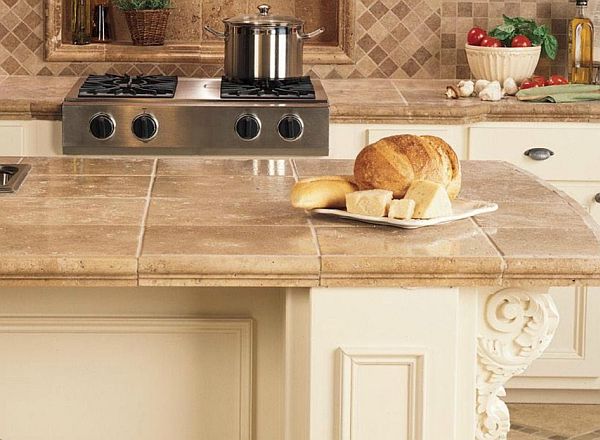
Engineered stone is a mixture of quartz and resin and the resultant is a material that is highly durable, heat and scratch proof, tough and does not require sealing. Thus, engineered stone is the best choice for a kitchen that gets used heavily.
Butcher Block
Butcher block is an affordable yet a very stylish pick for rustic or contemporary kitchens. It is extremely easy to clean by sanding, mild detergent and a soft cloth. It should be oiled and sealed and should be protected from extra hot surfaces of kitchen utensils.
Ceramic Tile
The use of ceramic tiles for making eye-catching backsplashes and countertops has been considerably during the past few years. They are less expensive and available in numerous colors, texture and sizes to suit your requirements. Ceramic tiles are resistant to stains, scratch, and heat but require regular cleaning.
Glass
Glass is an attractive material used for making countertops. It is extremely versatile and the price depends on its thickness. Glass countertops are very sturdy and heat resistant but can be damaged by scratches and cracks.
The choice of material for making the kitchen countertop greatly depends on how the place is being used.


